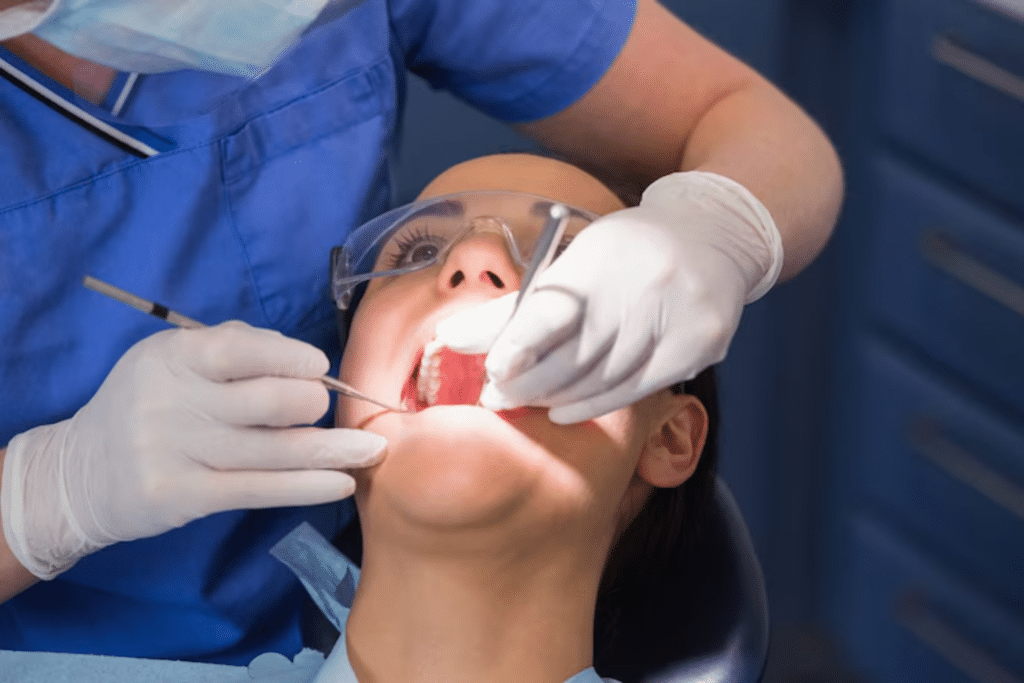Published on May 6, 2024

Tooth extraction, a common dental procedure, requires careful post-extraction care to ensure optimal healing. Managing pain and preventing complications are crucial during the recovery period. One common pain reliever, Ibuprofen, often raises questions about its safety and effectiveness after tooth extraction.
In this blog, we explore why avoiding Ibuprofen after tooth extraction might be the best choice for your healing process. We’ll delve into the extraction process, Ibuprofen’s effects, and the potential risks it poses to your recovery. Additionally, we’ll discuss alternative pain management options and tips for promoting optimal healing. Understanding these aspects will help you make informed decisions and ensure a smooth recovery.
By following the right post-extraction care practices, you can minimize discomfort and avoid complications, leading to a faster and more comfortable healing journey. Read on to learn more about why you should reconsider using Ibuprofen after tooth extraction and discover effective alternatives for pain relief.
A Brief Look Into Tooth Extraction
Tooth extraction involves removing a tooth from its socket in the bone. Dentists perform extractions for various reasons, including severe decay, infection, or overcrowding.
- Process: The dentist numbs the area, loosens the tooth with an elevator, and removes it with forceps.
- Reasons for Extraction: Severe tooth decay, gum disease, broken teeth, and wisdom teeth removal.
- Post-Extraction Symptoms: Swelling, minor bleeding, and pain are common. Recovery typically includes a few days of rest and proper oral care.

Ibuprofen and Its Effects
Ibuprofen, a nonsteroidal anti-inflammatory drug (NSAID), helps relieve pain and reduce inflammation. It’s widely used in dental care to manage discomfort.
- Pain Relief: Ibuprofen blocks the production of prostaglandins, chemicals responsible for pain and inflammation.
- Common Uses: Dental pain, headaches, muscle aches, and arthritis.
- Mechanism: It inhibits enzymes (COX-1 and COX-2) that produce prostaglandins, reducing pain signals and inflammation.
Understanding how Ibuprofen works highlights why it’s a popular choice for pain relief but also why it might not be ideal after certain procedures like tooth extractions.
Why Avoid Ibuprofen After Tooth Extraction?
Avoiding Ibuprofen post-extraction can prevent complications. Despite its pain-relieving benefits, Ibuprofen carries potential risks after dental procedures.
- Blood Clotting Impact: Ibuprofen can interfere with blood clot formation, essential for healing.
- Increased Bleeding: Prolonged bleeding can occur, delaying recovery and increasing infection risk.
- Dry Socket Risk: Improper clot formation can lead to dry socket, a painful condition where the clot dislodges.
By understanding these risks, you can make informed decisions about post-extraction pain management and opt for safer alternatives.
Alternative Pain Management Options
Managing pain without Ibuprofen involves choosing safer pain relievers and natural methods to ensure a smooth recovery.
- Recommended Pain Relievers: Acetaminophen is often suggested as it doesn’t affect blood clotting.
- Natural Pain Relief: Use ice packs to reduce swelling and numb the area. Apply for 15-20 minutes every hour.
- Herbal Remedies: Rinsing with warm salt water can reduce inflammation and discomfort.
- Distraction Techniques: Engage in relaxing activities like reading or watching a movie to divert your mind from pain.
These alternatives help manage pain effectively while minimizing the risk of complications associated with Ibuprofen.
Promoting Optimal Healing
For optimal healing after a tooth extraction, adhering to care instructions and making mindful lifestyle choices are key.
- Follow Instructions: Adhere to your dentist’s post-extraction guidelines for cleaning and care.
- Dietary Recommendations: Consume soft foods like yogurt, applesauce, and mashed potatoes. Avoid hot, spicy, and crunchy foods.
- Oral Hygiene: Gently rinse your mouth with salt water to keep the extraction site clean.
- Rest: Ensure you get plenty of rest and avoid strenuous activities to promote healing.
These steps help create a conducive environment for recovery, reducing the risk of complications and promoting faster healing.
When to Contact Your Dentist?
Monitoring your recovery and recognizing signs of complications ensures timely intervention and care.
- Signs of Complications: Severe pain, excessive bleeding, or signs of infection like fever and swelling.
- Timely Communication: Inform your dentist promptly about any unusual symptoms or concerns.
- Emergency Care Tips: If severe pain or bleeding occurs, contact your dentist in Richmond. Avoid taking ibuprofen unless advised.
Knowing when to seek professional help can prevent minor issues from escalating into serious problems, ensuring a smooth and successful recovery.
Avoiding ibuprofen after tooth extraction helps ensure optimal healing by preventing complications like prolonged bleeding and dry sockets. Opt for safer pain management options, follow post-extraction care instructions, and stay vigilant for signs of complications. With the right approach, you can achieve a smooth and speedy recovery.
